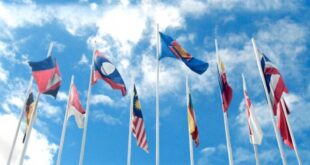Aladdin Saleh
After a decade of disastrous civil war, thousands of deaths and a complete collapse of the political system Libyans have finally seen a glimpse of light in the ongoing chaos – the nation is preparing to hold a general election. Those few with more optimistic expectations even foretell a new chapter in Libyan history, in which with the drop of the last bulletin on the 24th of December the ongoing battle for power will supposedly yield to freedom and human rights. However, the closer it gets to voting day the dimmer are the hopes for a favourable outcome. So why is the vote that was designed to end the crisis is threatening Libya with another one?
Anyone who has been following the Libyan conflict and has even a superficial awareness of the current developments in the country can easily pinpoint the factors that would question the very possibility of conducting fair and transparent elections.
Firstly, all of the foreign powers involved in the Libyan conflict have been seeking to sway the electoral process in favour of their puppet candidates from the start. This was the case during the formation of the Government of National Unity. The new government was advertised as an administrative body with equal representation of both West and East Libya – a key component for a sustainable political dialogue. However, in the wake of a heavy media campaign against the Libyan strongman Khalifa Haftar the GNU was mainly staffed by personalities either directly or indirectly backed by Tripoli. Obviously this undermined the proper functioning of the institutional body and has further deepened the rift between the West and the East.
Secondly, the sudden removal of key figures from the political process erases any hopes for stable and predictable election campaign. So far every case of a politician going dark, including Saif al-Islam Qaddafi and Khalifa Haftar, has been followed by obligatory reappearance, but nobody knows who will be the first to never resurface after drowning in the treacherous waters of Libyan politics.
We are currently witnessing this bizarre game of whack-a-mole during the registration for the presidential election. Right up until the last moment it was uncertain whether the main contenders who have popularity, power and capabilities to organise an election campaign – Abdul Hamid Dbeibah, Khalifa Haftar, Saif al-Islam Gaddafi and Fathi Bashaga – will join the presidential race. Then the situation took a U-turn after the High Electoral Commission registered 98 candidates most of whom were unknown to Western analysts and Libyans alike. After only a few days 25 candidates – a quarter of the whole number – were suddenly suspended because they violated the electoral law. Most were eliminated under the pretext of having multiple citizenships and criminal records and in case of state officials, failure to leave their positions three months prior to the elections.
This chaotic change of tides could have been regulated by a robust judicial system, but Libya doesn’t have one. The candidates were suspended by institutions of all shapes and sizes: the Court of Appeal in Sebha, Libyan Military Prosecution, the Court of Appeal in Tripoli. Saif al-Islam Gaddafi’s lawyer had a hard time getting into the court because he was obstructed by gunmen. The absurdity reached its peak in Misurata where the judges decided to take a radical approach and found it best to sentence Khalifa Haftar to death, not that it would have stopped the military leader from participating in the elections or even winning them under the current conditions.
The suspension of the current Prime Minister Abdul Hamid Dbeibah, who apparently did not step down from his position 3 months prior to the elections, did a fair share of stirring the pot in Libya. The suspension did not last long, of course. The very next day a new law was put together to allow the Prime Minister to sort out all of these puny nuances. Was that law officially put into effect and if so, by whom? Were other suspended candidates allowed to use it in their appeal? All of these questions remained unanswered in the pre-election madness.
If Dbeibah had been permanently removed from the list of candidates it would be a significant hit for Turkey, which has built its presence in Libya around the prominent businessman. The Government of National Unity made Dbeibah its victor in the upcoming election. However the hit would not be lethal because Ankara despite the pressure from world community is refusing to withdraw their military contingent from Libya. Regular negotiations of Joint Military Commission in the 5+5 format and countless UN pleas have produced no tangible result and are simply ignored.
The resignation of special envoy to Libya Jan Kubis became the proverbial cherry on top. Even if the Czech diplomat stays on his post up until the polls it is symbolical that he does not want his name to be associated with the elections.
Ultimately the stir-up in the electoral process puts in danger the very legitimacy of the elections, which are just around the corner. The absence of clarity and passiveness of civil organisations provide fertile ground for speculation and provocation, which will be undoubtedly exploited by the stake-holders of the conflict inevitably resulting in escalation of tensions between the sides. Is it a nefarious plot woven by powerful players in the region or just common negligence? We’ll get an answer after a few weeks that separate us from the general elections Libya has long waited for.
 Geostrategic Media Political Commentary, Analysis, Security, Defense
Geostrategic Media Political Commentary, Analysis, Security, Defense





